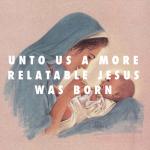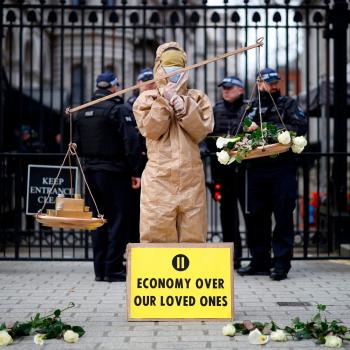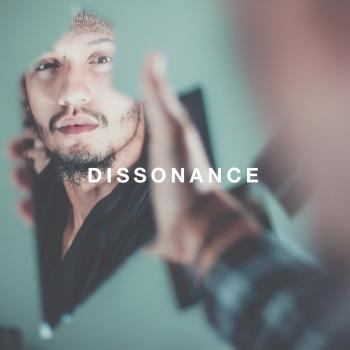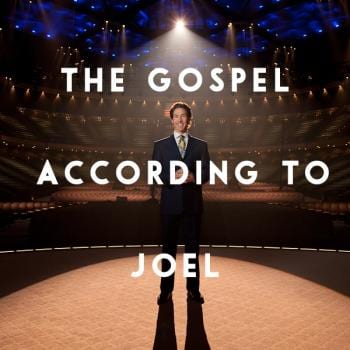I choose to identify as an evangelical because… it’s not political for a vast majority of us.
Tim Keller said it quite well in his recent New Yorker piece, “…there exists a far larger evangelicalism, both here and around the world, which is not politically aligned.”
In fact, a vast majority of the people surveyed during our elections are not even aware that these surveys consider them to be evangelical.
I choose to identify as an evangelical because… it’s an act of resistance.
As a POC, I’m more prone to ignore what the religious elite say; more specifically, I’m more inclined to not giving them the power to determine whether or not I’m welcome at their table; or, whether or not God loves my friends and family.
It’s an unspoken statement asserting the fact that they don’t determine who God loves and who He doesn’t love.
We act as if ignoring these forms of hate is working; clearly, it’s not – in this case, the platitude rings true:
“If not now then when, if not me then who?”
I choose to identify as an evangelical because… it’s attracting people of color; while, in contrast, progressive spaces are typically unfit (read: uncomfortable) for the person of color and marginalized alike.
I know that it’s hard to hear, but, it’s a necessary critique to receive; because, if we don’t embrace this critique then we won’t ever change our ways [as progressives]; furthermore, if we don’t change we’re going to quickly see our movements die off.
(Here are a couple articles I wrote on this that reference the research: “The New Moral Majority: The Misfits and the Exiled“; “Equitable Unity in the American Church: How Can We Better Empower People of Color?“; “A Lack of Minority Leaders is Killing the Church“)
POC that are, and will continue to be, misled by others who don’t preach a gospel that understands their pain and struggle… that is unless progressive POC, and our allies alike, choose to stay.
The lines get blurred when our actions don’t match what we say to be our passion(s). Socially-driven churches that do not center the oppressed person… it’s bizarre, to say the least.
I choose to identify as an evangelical because… it’s the largest missions field in the world.
Being as frank as I possibly can, the typical evangelical pastor is doing nothing but masquerading around as if they’re an angel of light. And, unless we are able to bear the not-so-heavy-cross of having to put up with their religiosity, innocent people are going to be misled and taken advantage of by “wolves” and “snakes”; again, masquerading as pastors.
I choose to identify as an evangelical because… its resources are insane.
Look, somebody needs to fund our mission. When friends condemn me for this, I remind them of the fact that most of us POC don’t have access to the same circles and resources/finances, as they do… and so one can far too easily take this for granted.
This is why Jesus was subversive, and why He told his disciples to “be as shrewd as snakes and harmless as doves.”
With that said, if they’re offering up their resources it would be ridiculous for us to not take advantage of there offers; again, especially if you grew up poor you then you understand the necessity for funding, and how much of a rare privilege it is to have access to these resources.
I choose to identify as an evangelical because… they’re actively centering people of color, without hesitation.
When it comes to racial equality, our words don’t speak as loudly as the evangelical mega-Churches actions. The predominant evangelical Churches, here in the Northeast, are crushing it when it comes to centering-POC on stage, without hesitation.
Being irrelevant, many times can be representative of a bigger problem: disconnection. Being relevant is important; while relevancy is not the end goal, it definitely helps when one is wanting to effectively combat injustice.
The progressive churches relevancy for the ears of the suffering, oppressed, marginalized and downtrodden is still yet to be seen.
Sunday services, they’re anything and everything but empowering. They’re boring. To put it plainly, their worship is dry; sermons geared toward the upper-class; progressives, we more than miss the mark on energizing the tired POC. In fact, it’s safe to say that it’s draining to consistently have to subject yourself to such a disconnected environment.
Attending a Presbyterian service it kind of feels like how I’d imagine being forced to watch PBS nonstop would feel like… nobody has the stamina for that.
Which, speaking of injustice…
I choose to identify as an evangelical because… it’s seemingly making more of an impact on social issues.
Again, this is just pointing towards how effective the popularized evangelical church is in spreading a message and igniting the masses (e.g. Passion Conference, Catalyst Conference, CCM, etc.).
Regardless of one’s thoughts about these institutions, we can’t deny how effective they’ve been at mobilizing (granted, they’re mobilizing, arguably, for a white evangelical form of “supremacy” perpetuating an unhealthy form of a westernized-Eurocentric exceptionalism – nonetheless, are there pieces of what they’re doing, that we could implement while leaving behind the bigotry?)
In Conclusion…
The evangelical Church is attracting millions of people and seemingly thriving around the world; it’s not just attracting any particular person but it’s attracting the marginalized, the disenfranchised… essentially, it’s attracting the type of person us progressives say we want to reach; yet, our churches are completely vacant of…
“You say you care about the poor? Then tell me, what are their names?”
– Gustavo Gutierrez
— andy gill (@itsandygill) October 27, 2017
For me, it’s always been about empowering and helping the disenfranchised. This is my mission, my purpose, and my deepest inward intention in living; it is where I find meaning, it’s what drives me to wake up early in the morning; it lends me a reason to continue breathing.
And, we must all remember that labels are good and helpful descriptors, but, they are not one’s sole definition.
Remaining in these evangelical spaces as a person of color that’s genuinely not welcome at these tables, all the while, shamelessly asserting a theology that directly contradicts their hate speech… it’s not ideal, to say the least; it’s also why so many of us (understandably) ironically departed.
It’s not everyone’s cross to bear.
[if you enjoyed this post head over and check out my Facebook Page to follow along with other and future “-ish”]













